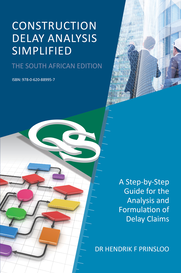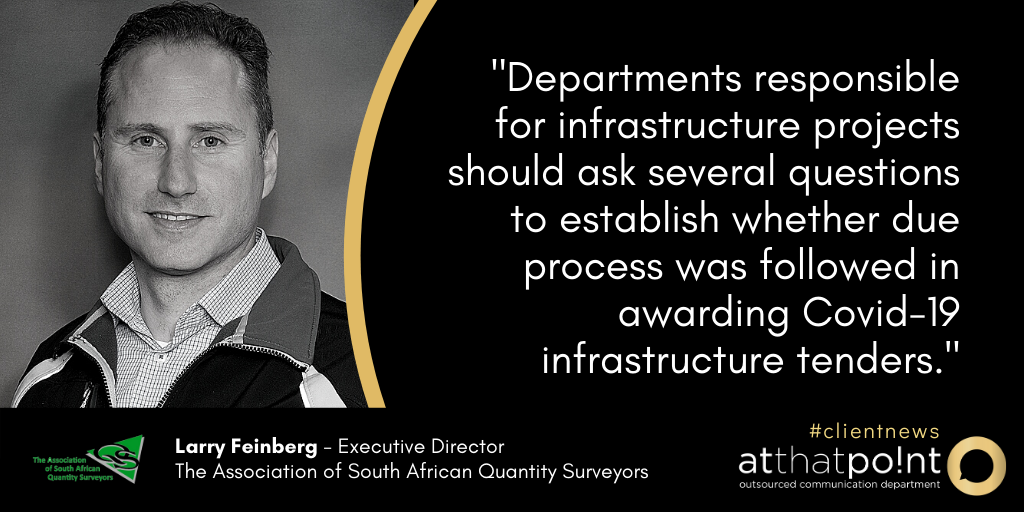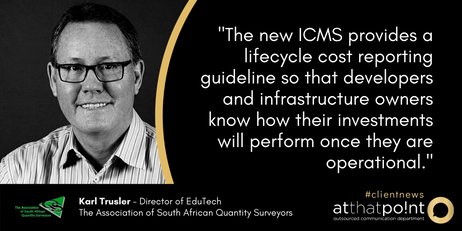|
The list of companies that were awarded contracts by government for the supply of goods and services related to the Covid-19 pandemic include details on personal protective equipment (PPE) contracts. Provincial expenditure disclosure reports however indicate that as much as – or even more – has been spent on infrastructure projects but very little detail is provided to compare these costs to industry norms.
From April to July 2020 Gauteng spent R2,112bn on PPE and R2,977bn on infrastructure. As at 27 July 2020 the reported expenditure for KwaZulu Natal amounts to R800mil on PPE and R1,139bn on infrastructure. The Western Cape report provides information on PPE expenditure only and not on infrastructure projects. These projects included upgrades and alterations to health facilities and education facilities as well as the establishment of field hospitals, quarantine and isolation facilities. The expenditure reports provide detailed information on the unit of measure, price per unit and quantity required on the procurement of PPE for contracts from as little as R1000. The reports however include very little detail on the specifications for the infrastructure projects and how they were procured. These details are used by those that assign tenders to benchmark quoted costs against prevailing market prices and Treasury norms. This comparison helps to identify inflated prices and related irregularities. However, on the infrastructure projects, only a single amount together with a very brief description of the work is provided. This lack of detail does not allow for a basis to benchmark these costs against market norms. It is therefore extremely difficult to determine whether government obtained the expected value from the infrastructure expenditure. Lack of understanding causes lack of outrage The skewed focus on the reported irregular expenditure on PPE is most likely due to a general lack of understanding of how detailed infrastructure procurement management and project delivery really is. It is for this reason that the Quantity Surveying profession is seeking responses to key questions that will expose any irregularities if applicable. According to the Association of South African Quantity Surveyors (ASAQS), a Quantity Surveyor is the member of the professional consultant team responsible for managing all financial aspects on construction projects from start to finish. In the public sector they are also responsible for preparing procurement documentation on behalf of organs of state. Quantity Surveyors ensure that tenders are awarded to building contractors at market related prices which are benchmarked against industry rates. They also verify that the work done by the contractors is based on actual performance before payment is released to the contractor. Government must caution against writing blank cheques for infrastructure projects In the Gauteng expenditure report 15 health infrastructure projects are listed without any names of contractors or of the core professional consultant team consisting of quantity surveyors, architects, engineers and project managers. In the KwaZulu-Natal Report infrastructure expenditure refers to contractors only. With no indication of the involvement of professionals in the documents available in the public domain it could easily be assumed that none were appointed. If this is indeed the case, then it is highly possible that the procurement and management of these projects lacked the required independent and professional oversight. This is especially concerning when expenditure on Covid-19 infrastructure exceeds that of total PPE procurement – without the same amount of public outrage. It is of utmost importance to the South African economy to ensure that Covid-19 infrastructure projects were awarded and completed in a fair, equitable, transparent, competitive and cost-effective manner even though emergency procurement was necessary at the time. Departments responsible for infrastructure projects should ask several questions to establish whether due process was followed in awarding Covid-19 infrastructure tenders. The answers provided to these questions should be reviewed by competent, registered built-environment professionals in order to determine “fit for purpose” decision-making and to identify any irregularities or non-compliance. The ASAQS, through its members and provincial chapters, is ready to assist investigative agencies to identify and quantify any fraud and corruption on Covid-19 infrastructure projects. ENDS EDITOR’S NOTE: For the sake of brevity we have excluded from the main body of this media release the list of questions departments responsible for infrastructure projects should ask to establish whether due process was followed in awarding Covid-19 infrastructure tenders. We include these questions below for your convenience:
MEDIA CONTACT: Stephne du Toit, 084 587 9933, [email protected], www.atthatpoint.co.za
0 Comments
 Property developers, construction owners, Quantity Surveyors, and contractors face many challenges as they navigate through mostly uncharted territory with their projects experiencing mounting risks from the effects of COVID-19. Dr Hendrik Prinsloo, former Senior Lecturer at the Engineering, Built Environment and Information Technology of the University of Pretoria, recently published his book entitled Construction Delay Analysis Simplified: A Step-by-Step Guide for the Analysis and Formulation of Delay Claims. Christelle Bown, President of the Association of South African Quantity Surveyors, says the book provides the much-needed guidance the industry is looking for to make sure that delay claim-assessment processes are managed in a way that is fair and transparent to employers and contractors. “Across the globe, construction projects are impacted by the pandemic in myriad ways including reduced or compromised the availability of materials, slow-downs in production rates, non-availability of specialist resources, site closures where the number of infections is high, and a reduction in the availability of labour due to compromised health workers, among other challenges. Dr Prinsloo’s new book succeeds in simplifying the many complexities associated with the delay claim-assessment process at a time when we need it most,” says Bown. Localising international best practices for delay claims Dr Prinsloo, who now resides in San Diego, conducted intensive research on delay claims over many years, and this research produced a groundbreaking New Delay Analysis and formation method. The method, which is covered in the book, has been presented at numerous international conferences and is being in several countries. The ASAQS, who has worked closely with Dr Prinsloo over the years, is co-publishing a South African version of the book. “The book gives guidance on how disputes can be minimised, and it is written in such a way that it can be used for an in-depth study into delays or as a quick reference guide for the assessment or formulation of delay claims. Dr Prinsloo was a panellist on a recent ASAQS webinar about the contractual consequences of COVID-19 and attendees – including myself – were impressed by his knowledge on this topic. We are excited to launch the co-published version of his book to the local built environment,” says Bown, who was invited to write a foreword for the book. Formulating delay claims for JBCC and FIDIC contracts Professor Tinus Maritz, CEO of the Joint Building Contracts Committee (JBCC), who also wrote a foreword for the book, says the book is particularly helpful in how it gives guidance on how delay claims analysis is formulated using the JBCC and FIDIC standard forms of contract. “Dr Prinsloo’s book ensures that the delays experienced on construction projects, which in most cases might be excusable delays, are dealt with and analysed fairly and transparently. It provides a better understanding of the administration and good practice in this particular area of contracting, and it will undoubtedly be used by many practitioners, clients, contractors, and subcontractors throughout South Africa and its neighbouring countries,” says Maritz. An industry-wide invitation is open to all, to attend for free, a webinar presented by Dr Hendrik Prinsloo on Construction Delay Analysis from 2:00-5:00 pm on Wednesday the 12th August and repeated on Tuesday the 22nd September 2020. To register for these webinars, please click HERE. To order your copy, contact Gwen Mlondobozi at the ASAQS on [email protected] ENDS MEDIA CONTACT: Stephne du Toit, 084 587 9933, [email protected], www.atthatpoint.co.za For more information on ASAQS please visit: Website: www.asaqs.co.za Facebook: The Association of South African Quantity Surveyors Initiated at a meeting held in the offices of the International Monetary Fund in Washington in 2015, the International Construction Measurement Standards (ICMS) presents the opportunity to make a meaningful comparative analysis of construction costs between countries on a global scale, not least by international organisations such as the World Bank Group, the International Monetary Fund, and various other funding institutions, government and non-government organisations and the United Nations.
Given the interest by international funding intuitions for global consistency in construction cost reporting, as advocated by the ICMS, Karl Trusler, EduTech Director at the Association of South African Quantity Surveyors (ASAQS), says the government’s planned infrastructure roll-out makes it necessary for Quantity Surveyors to be open to expanding some of their cost reporting methods. “With President Cyril Ramaphosa receiving a “firm commitment” amounting to billions of rands for the 55 bankable infrastructure projects, it is essential to know what reporting standards the big lenders will accept when reviewing project proposals. South African Quantity Surveyors who want to do work across borders or overseas will also benefit from familiarising themselves with the ICMS, as global consistency in construction cost benchmarking is becoming increasingly sought-after among critical stakeholders in the international built environment,” says Trusler. What is the ICMS? The ICMS is an international standard that aims to provide greater global consistency in classifying, defining, measuring, analysing and presenting construction costs at a project, regional, state, national, or international level. It isn’t a detailed method of measuring construction works. Instead, it is a high-level benchmarking and reporting framework for international cost classification, reporting, and comparison. “Project developers and financiers want to be able to compare apples with apples when reviewing project costs across the globe. The data bank of crucial information provided by the ICMS enables informed decision-making. Although not mandatory, the ICMS is likely to become an increasingly valuable requirement for South African Quantity Surveyors who are involved on large infrastructure projects that are funded by foreign investors,” Trusler says. The first ICMS was launched in 2015 and it was a guideline for reporting on the capital investment costs of a project. Last year, the ICMS Coalition – which consists of 45 organisations from around the world and 27 Standards Setting Committee members - published the second edition of the ICMS. A benchmark for international lifecycle cost reporting “The new ICMS provides a lifecycle cost reporting guideline so that developers and infrastructure owners know how their investments will perform once they are operational. This type of information is crucial for both private and public-sector role-players who are more motivated than ever before to invest in the development of world-class infrastructure,” says Trusler. Among the 55 projects that government has earmarked for development is an aviation park near Upington, a smart city in Lanseria, a R3.1-billion Space Infrastructure Hub, a 516-hectare citrus farm in the Eastern Cape, and a water project that includes some 160km of pipe, and pump stations to get water to Eskom’s large power stations, Medupi and Matimba, among other projects. There is sufficient overlap between the current cost reporting methods that Professional Quantity Surveyors use and the ICMS, so we are working towards delivering a solution that enables the ICMS report to be generated in parallel with the way we currently do cost reporting in South Africa. I look forward to helping members embrace and benefit from this solution,” concludes Trusler. An industry-wide invitation is open to all, to attend for free, a 1-hour live international panel discussion on the ICMS from 4:00 – 5:00 pm on Tuesday the 1st September 2020. The panel will comprise of Justin Sullivan (ICMS Coalition Chair) Ken Creighton (ICMS Coalition Past Chair) Gerry O’Sullivan (Standards Setting Committee Vice-Chair) and Julia Dela Cruz (ICMS Coalition Trustee) and will be hosted by the ASAQS. To gain more insight into the ICMS, please register for the webinar by clicking HERE. ENDS MEDIA CONTACT: Stephne du Toit, 084 587 9933, [email protected], www.atthatpoint.co.za For more information on ASAQS please visit: Website: www.asaqs.co.za Facebook: The Association of South African Quantity Surveyors |
Archives
July 2024
Categories
All
|



 RSS Feed
RSS Feed